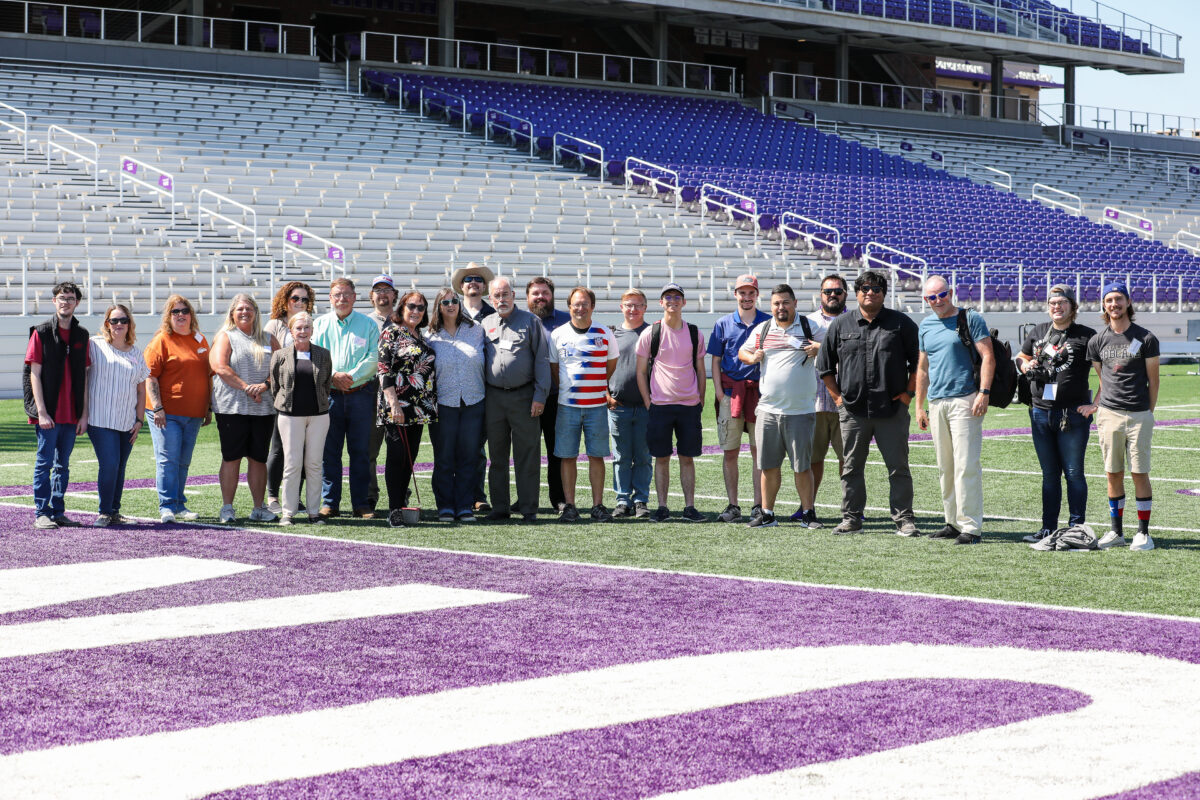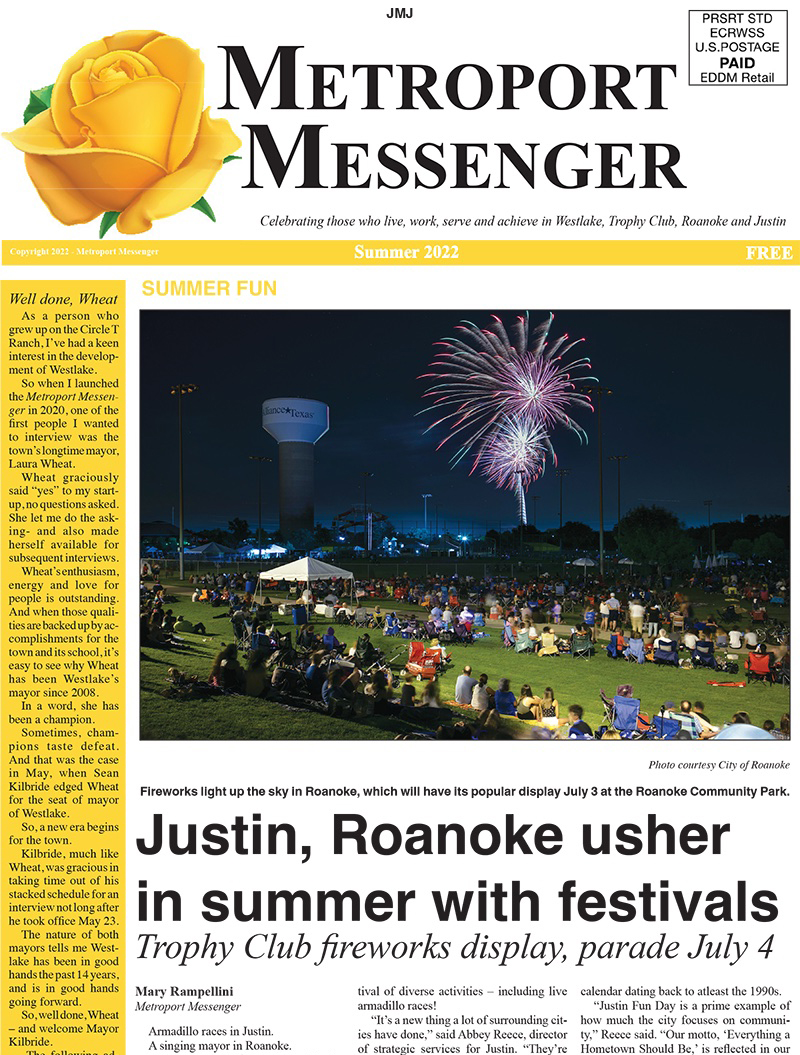: Sierra Wells/TCCJ Contributor
Journalists from newspapers around Texas joined the Texas Center for Community Journalism (TCCJ) on Sept. 28-30 for a workshop about covering sports at community newspapers.
“The mission of the center is to provide training to folks like y’all, mid-level professional journalists who are out in the trenches doing the work. That’s our main goal,” TCCJ Director Austin Lewter said.
Eastern Illinois University Professor of Journalism Joe Gisondi started the workshop with a presentation about multimedia sports coverage.
He highlighted the importance of finding your newspaper’s audience. Whether it be on your website, Facebook, Twitter or Instagram, post where people follow and consume your content most.
“Too often we think of the website as the main feed, just like for the print edition. It’s not all about the print, it’s not all about the website,” Gisondi said. “It’s about wherever you can find them. Like back in the ‘80s and ‘90s, you could see newspaper boxes in every corner because that’s where people were.”
Gisondi also stressed the importance of visuals in sports reporting, such as photos and videos, because they aid in storytelling.
“We want to have a visual every time for a couple of reasons,” Gisondi said. “When you put it on Facebook, when you put it on Twitter, when you put it on social media, there’s nothing more unprofessional or clunky looking than to have your masthead of your paper as the main thing for your story. That doesn’t help tell the story.”
Professional photographer Brian Braun joined later and gave further insight into sports photography.
Throughout the rest of the workshop, multiple speakers discussed how to best cover sports events.
Denise Squier, the editor for the Burleson County Tribune, went over volleyball coverage, which journalists can struggle with due to the complex rules and terminology.
Squier thinks reporters need to understand the team structure and rules to adequately cover a game.
“It’s hard to write about something you don’t know anything about,” she said.
Hood County News publisher Sam Houston gave a presentation on how to rethink traditional sports coverage.
“Young people now, the last thing they want to do is take a vacation to California and go to Chili’s,” Houston said. “Anybody in here agree with me on that? They want to go to someplace that’s unique, different and special. That’s the mindset now.”
Houston says sports results in print newspapers are old news because people can receive that information online more quickly.
“That’s why you have Facebook,” he said. “That’s why you have online. People need it instantly. That’s where you want to drive it.”
Due to a recent cultural shift toward technology, Houston thinks it is important to exist not only in print but on online and social media platforms as well.
Lewter closed out the workshop by encouraging the journalists to put what they learned into action but only if it works with their newspaper’s dynamic.
“You’re not going to implement everything you learn. You’re not going to want to implement everything you learn,” Lewter said. “Some of y’all just listened to Sam talk for an hour and were inspired, and some of y’all were like, ‘that’s not going to work for me,’ and that’s fine. We’re not here to dictate what you do. We’re here to give you those ideas. I always said that if you come away from these things with one or two things that you can put into action, then it’s worth your time.”
The upcoming TCCJ workshop in November will cover social media marketing and harnessing the power of social media through community newspapers.
Founded in 2008, the TCCJ is housed at Tarleton State University and is dedicated to training community journalists at no charge to them or their employers.

